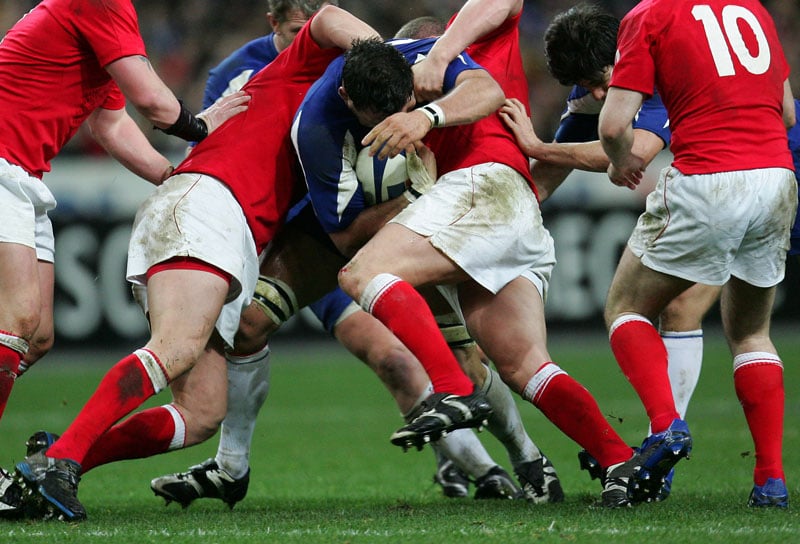The Six Nations Rugby Tournament is played each year in February by teams from England, Scotland, Wales, Ireland, Italy and France.
On this fourth day of the Six Nations 2019 Tournament, Ireland, the reigning European champion, left France no chance by leading 26-0 just few minutes before the end of the Huguet and Fickou’s tries which helped to reduce the score (26-14). The French, who had already lost to the Wales and England, are more destabilized than ever after this new defeat and must save the honor in Rome next Sunday for their last match of the tournament against Italy, currently the last of the tournament.
In this year's World Cup - to be held next September in Japan - the expectations are strong on the side of the team of France, which remains the second most titled nation in this competition after England but that makes a bad tournament of 6 nations.
After these first 5 games, what lessons to learn from this failure for French rugby? How to consider a realistic goal for the XV of France for the world cup? In this article, learn how setting relevant and realistic goals can lead your sales team to victory!
1) THE NEED TO SET A REALISTIC OBJECTIVE THAT TAKES IN ACCOUNT THE POTENTIAL OF EACH ONE
SMART and CLEAR objectives to support individual potential
Knowing how to value one's teams is essential to keep their motivation intact, however, overvaluing their performance does not do them any good, quite the opposite. In fact, hammering to collaborators that they are the best while these stringed together the bad scores, does not allow them to identify their errors and their improvement, and thus improve their results.
Like the rugby players of the French team, who have made a quite bad tournament Six Nations and have not really shone in the competition for the last five years, it is necessary to make an objective judgment on the situation in order to identify the blocking points and to provide the appropriate solutions. Thus, the objectives set must be realistic and take into account the potential of each employee.
CLEAR's goal theory supports the SMART objectives by emphasizing that each team member must be able to co-build, adopt, and implement goals.
Thus, we can define the concept of CLEAR objectives as follows:
C for Collaborative: The goal is to encourage employees to work together collaboratively and as a team.
L for Limited: the objective must be "limited", both in terms of its scope of action and its duration.
E for Emotional: the goal must make an emotional connection with employees, by seeking their energies and their individual passions.
A for Appreciable: very broad objectives must be divided into different stages of achievement. Achieving goals faster and more easily will motivate your employees to achieve the longer-term business vision.
And finally R as Refineable, the definition of an objective must be clear and determined and it must be able to adapt to new situations and / or information.
2) OBJECTIVES MUST BE REVIEWED REGULARLY BASED ON THE CONTEXT
To be effective, it is necessary to readjust the goal strategy fairly regularly, adapting it to the context
Relying on goals too long ago that do not take into account changing day-to-day situations is the best way to fail to achieve the expected level of performance.
In the case of the Six Nations Tournament, although title holder, Ireland lost to England (20-32) the first day of the tournament. In a press conference, Joe Schmidt, the coach of Fifteen Clover, admitted that this defeat was "a return to reality" for his team. The Irish, favorites of the competition, can therefore stumble against opponents better prepared and in a better position than them. It is not uncommon to see the favorites get out by challengers that no one was waiting for.
The objectives of the XV of France, with several of its key players injured, must necessarily be revised in order to hope for a victory against the XV of the Rose next Sunday and aim why not a second place in this 2019 Nation Tournament.
3) THE ROLE OF THE COLLECTIVE GOAL IN TEAM WORK
Rugby is a sport that perfectly illustrates the importance of collaboration between players
The scheme and organization of the game impose a certain synchronization, based in particular on cascading backward passes and requires surgical cohesion. Moreover, the melee, which perfectly symbolize the strength of the collective, can be damaged by the slightest imbalance in the collaborative game. The collective game is essential to the success of a scrum and therefore the success of a team in the field. Joe Schmidt, Ireland coach, on the importance of collective work "England is really a great team. They played very well. It is difficult to exploit the gaps of England. With the intensity that they put in the game collectively, it made our lives difficult and suffocated on the ground. "
In rugby, as in business, the introduction of collaborative work is sometimes essential to the success of a joint project. Nevertheless, the need for collaboration should not be limited to a "managerial showcase" and must really be taken into account when setting collective objectives. Thus, team spirit can be instilled by managers and make sense of a common work supported by an appropriate variable compensation plan.
So, can French team salvage some pride?





